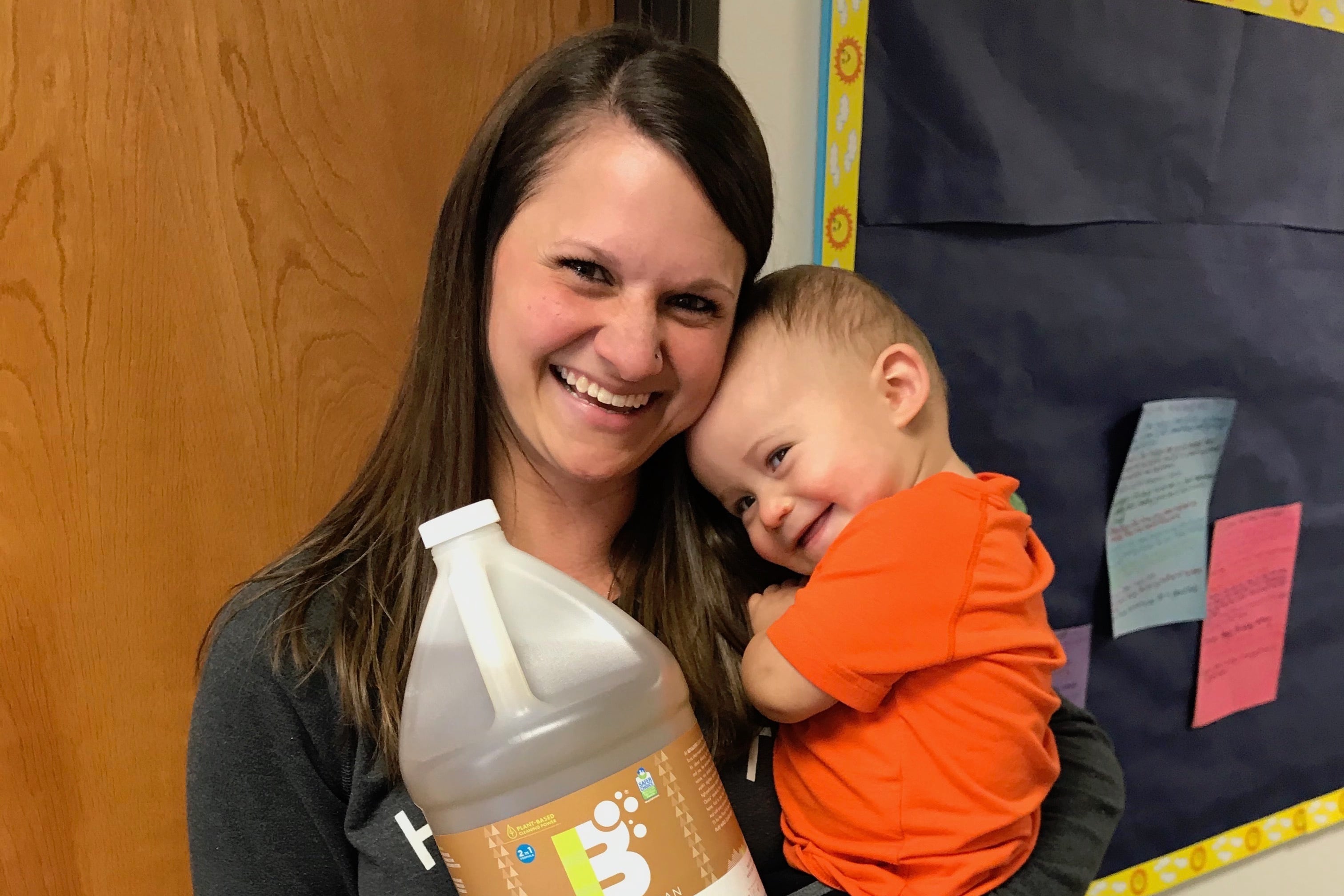Willene Squire usually shops for cleaning supplies at Lowe’s Market on Main Street or at one of the two dollar stores in Westcliffe, the southern Colorado town where she lives and operates an in-home child care business.
But when the pandemic hit, so did panic buying. Suddenly, local shelves were cleared of the supplies she needed to keep her home clean and sanitized for the babies and toddlers she cares for five days a week.
“I tell you it was unreal,” Squire said. “There were times we couldn’t get tissues, paper towels, produce, toilet paper, bleach.”
With strict cleaning protocols in place for Colorado child care providers who stayed open or reopened during the pandemic, shortages of routine supplies have taken on outsize significance. Without bleach and hand soap, they could be forced to close their doors.
As word of the shortages, particularly in rural areas, spread in April, a group of state officials, philanthropists, and early childhood leaders decided to act. They pooled state funds and private money in the newly created Keep the Lights On Fund and placed a $160,000 bulk order through a Boulder restaurant supplier. Those supplies — along with a large donation of face masks — came to a local warehouse, and starting last week, a logistics company began shipping it all out to the state’s 34 early childhood councils.
Staff from the councils, which provide training and other assistance to child care providers, are in the process of distributing the supplies — everything from bleach and hand soap to gloves and tissues.
Molly Yost, director of early childhood initiatives at Mile High United Way, which helped coordinate the project, said around 1,200 child care providers in all parts of Colorado will get a share of the supplies by the end of the month.
“I know bleach isn’t sexy. But it’s what’s needed right now,” she said. “Hopefully, this could triage some of the immediate need.”
Amy Payton, executive director of the Early Childhood Council Leadership Alliance, another partner in the project, said, logjams in the supply chain have been the biggest problem for providers, but the cost of supplies is also also a factor because providers are cleaning even more than usual and typically have slim reserves.
“Given the situation, people were very, very concerned about keeping it as cleaned and sanitized as possible,” she said.
A survey by the alliance found that at least 70% of responding council leaders reported that providers need disinfectant wipes, gloves, bleach, face masks, and hand sanitizer. About half reported that providers needed liquid soap, food, or thermometers. Only 4% reported no supply needs.
Yost said she’s already heard questions about whether there will be a second cleaning supply order in the fall. While that’s undecided, Keep the Lights On Fund partners hope to raise $500,000 to help providers with other needs in the coming months.
Currently, about 1,200 of Colorado’s 3,700 licensed providers serving children 0-5 have reported to the state they are open. As more providers reopen over the summer — and if schools open in the fall — the demand for cleaning supplies could increase.
In Westcliffe, Squire received her box of cleaning supplies last week.
“I was so happy to see the hand soap,” she said, adding that dish soap was her Plan B if she’d have completely run out.
At Positive Alternative Preschool in southeast Denver, Director Marcia Rush is still waiting for her box of supplies. She’s got enough for now thanks to parents who’ve jumped in to provide hard-to-find supplies.
About three weeks ago, when Rush let her early childhood council know about shortages, they provided her a letter she could show to store staff saying she was an essential business that needed access to certain products.
“That didn’t help me at all,” Rush said. “Walmart or Costco or whatever, they would say, ‘We simply don’t have any.’”
Rush, who currently has about 28 of her usual 50 children, said the supplies from the Keep the Lights On Fund will definitely help — and relieve parents of the burden of keeping her stocked.
“They pay for their child care, they don’t need to be paying for supplies too,” she said.
Correction: This story has been changed to reflect the correct number of child care providers for children 0-5 who have reported that they are open. About 1,200 of 3,700 have reported being open, not 5,000 of 8,000.







